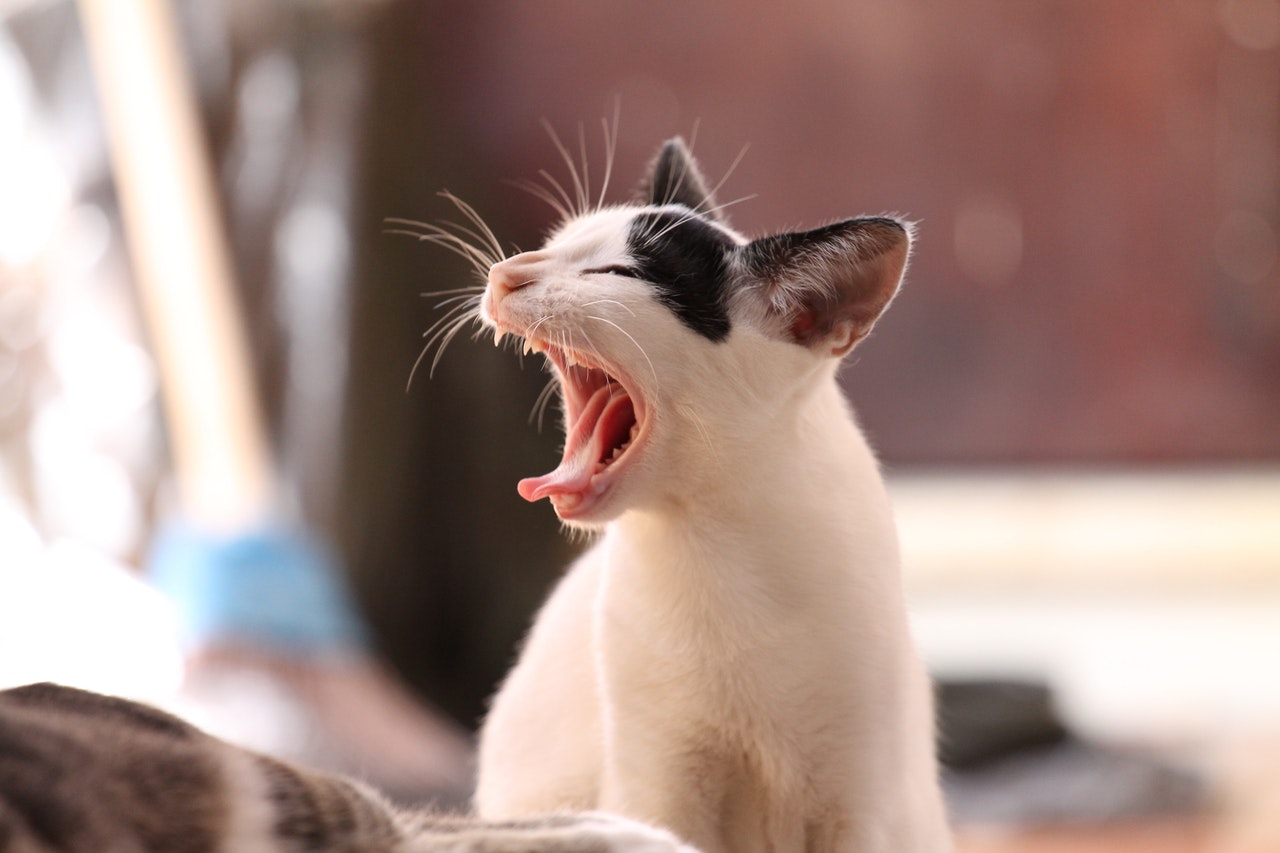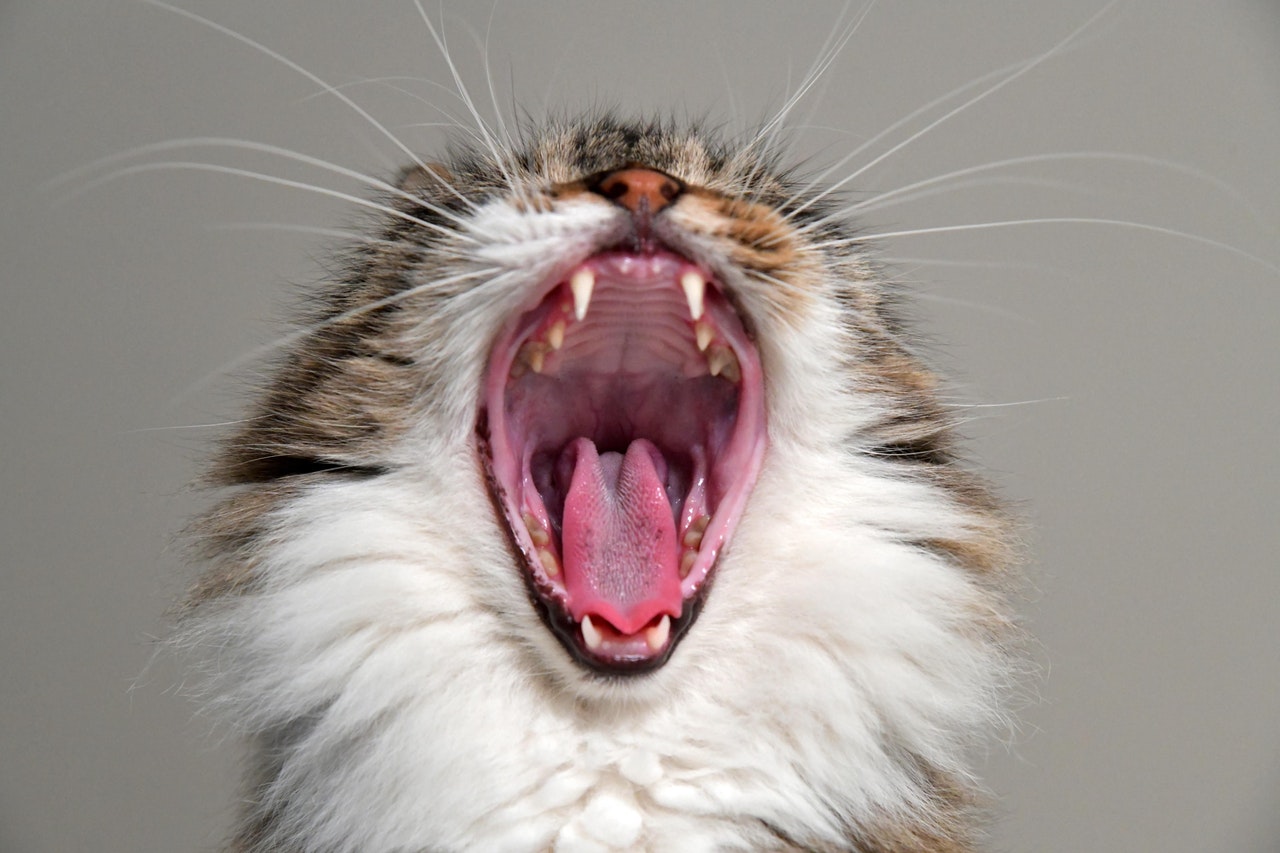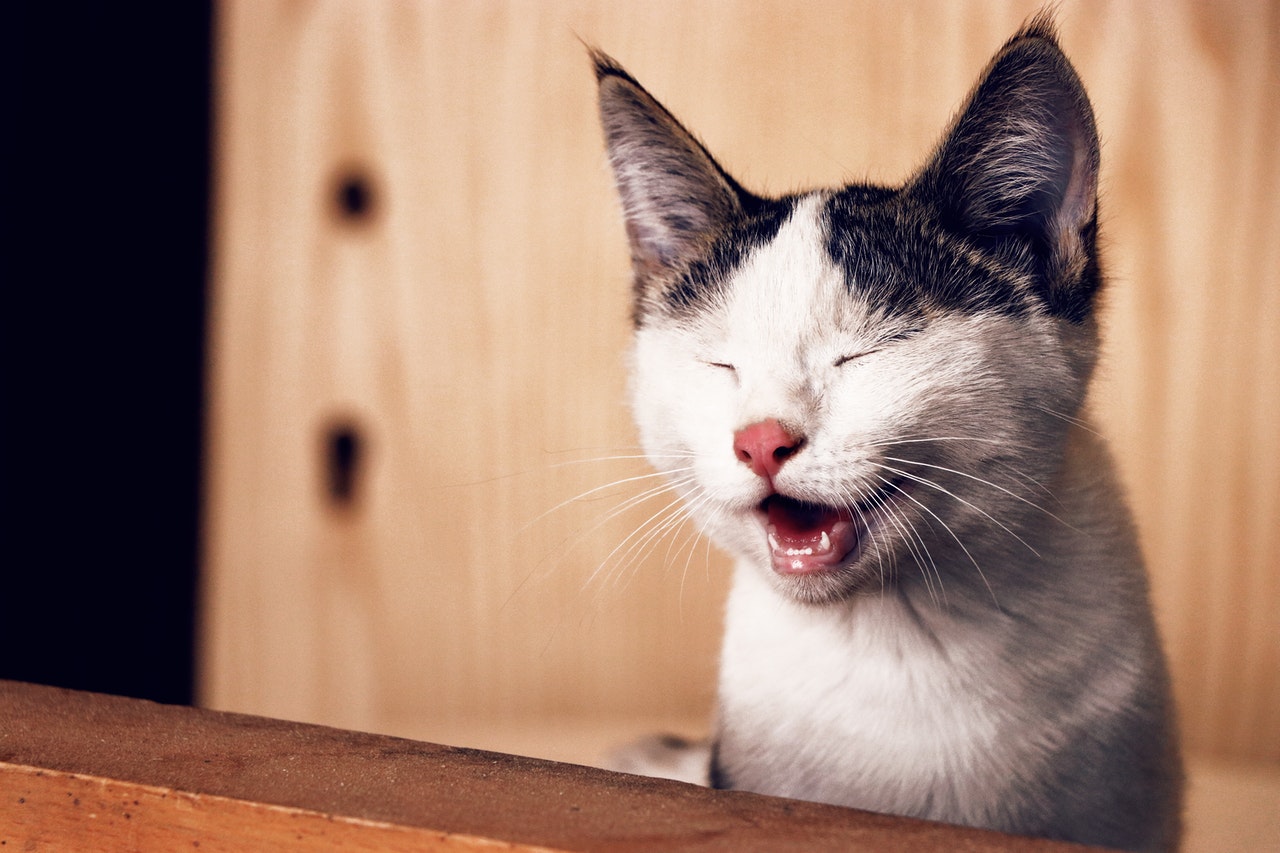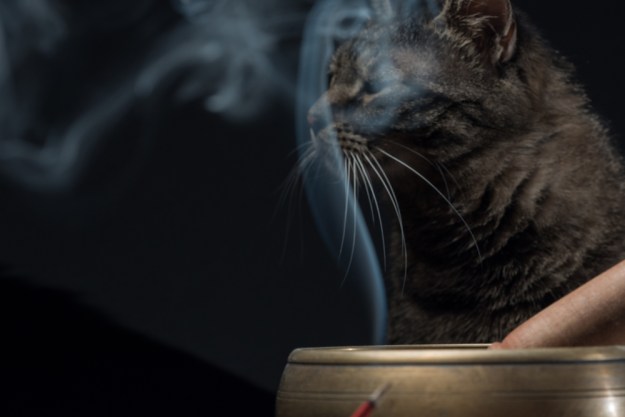The typical human mouth has 32 teeth, most of which grow in when you’re around 13 years old — wisdom teeth being the exception. The hardest substance in the human body, our teeth are essential to our oral health, chewing, and even speech. Initially, we have 20 baby teeth, also known as deciduous teeth. Just like us, cats have deciduous teeth and permanent teeth. But how many teeth do cats have? Let’s look closer at the mysterious world of a cat’s mouth. We’ll find out how many teeth cats usually have, what causes tooth loss, and how you can maintain your cat’s oral health at home.

How many teeth do cats have?
Just like human babies, kittens are born without teeth. Teeth begin growing in when kittens are roughly 3 weeks old, and they’ll have fully erupted around 6–8 weeks old. When your fur baby is a kitten, she has 26 deciduous teeth, also called baby teeth, milk teeth, or primary teeth. As she grows older, she’ll begin to lose her deciduous teeth. The teething process begins around ages 3–6 months. You may notice your kitten chewing on her toys more than usual as her deciduous teeth loosen to make room for her permanent teeth. While you may find your kitten’s deciduous teeth lying around the house, it’s also perfectly normal for kittens to swallow their baby teeth. Don’t worry — it won’t harm your fur baby.
How many teeth does a cat need?
Adult cats have 30 permanent teeth, but how many do they actually need? According to WellPets, your cat should retain all 30 teeth throughout her life. However, a combination of genetics and poor oral hygiene often leads to tooth loss or extractions. We recommend that you start brushing your cat’s teeth while she’s still a kitten. She’ll grow accustomed to having her teeth brushed and, thanks to the variety of tasty cat toothpaste on the market, she may even enjoy it.
Is it normal for cats to lose their teeth?
It’s not normal for a healthy adult cat to lose any of their permanent teeth. Veterinarian Dr. Laci Schaible says, “While cats do not develop cavities like humans do, this does not make them exempt from dental disease and tooth loss.” However, dental disease is so commonplace that roughly two-thirds of all cats ages 3 and over suffer from some form of dental disease. Fortunately, not all dental disease means your cat will lose her teeth. Just like with humans, plaque buildup can harden into tartar, which requires uncomfortable planing and scaling at your nearest veterinary dentist. Regular dental cleanings, daily brushing at home, and annual vet visits can all help prevent dental disease in your fur baby.

What causes tooth loss in cats?
The most common causes of tooth loss in cats are gingivitis, periodontitis, and tooth resorption. Let’s look closely at each.
Gingivitis
Gingivitis is caused by the accumulation of bacteria around the gum line. This collection of bacteria damages the connective tissue in your cat’s mouth, leading to painful inflammation and potential tooth loss. If you notice redness or swelling around your cat’s gums, take her to the vet for a checkup. Some cats develop gingivitis as a result of an autoimmune disease, so you’ll want to make sure your fur baby doesn’t have any underlying health problems. Dental cleanings, antibiotics, and sometimes tooth extractions are necessary to prevent gingivitis from progressing.
Periodontitis
If gingivitis is allowed to progress, it becomes periodontitis. Unlike gingivitis, periodontitis is irreversible, as the connective tissue holding your cat’s teeth in her mouth are so damaged, tooth loss is almost inevitable. If your cat suffers from periodontitis, she’ll need a thorough cleaning to remove buildup and save her teeth. Your vet may recommend numerous extractions if her periodontitis is severe.
Tooth resorption
The most common cause of tooth loss is still a mystery to veterinarians. While we’re not sure why it happens, tooth resorption causes the structure of the cat’s tooth to break down from within. Anywhere from 30% to 70% of cats will suffer some tooth resorption to some degree. Characterized by lesions at the tooth root, tooth resorption requires immediate treatment to prevent the problem from worsening.
Can cats with no teeth eat dry food?
While maintaining your cat’s dental health is important, cats with few or even no teeth can still live happy, healthy lives. We humans grind our food with our teeth, but cats do things a little differently. Some cats may prefer wet food, but the rough, spiky surface of your cat’s tongue will help her eat dry kibble. Additionally, just like wildcats who catch their prey, your cat swallows her food whole.

If you have concerns about your cat’s dental health, take her in for a checkup, look her teeth over regularly, and brush them as often as possible. We recommend daily brushing, but it’s OK if you can manage only a few times a week. It’s never too late to begin brushing your cat’s teeth, and prevention is always better for your fur baby than treatment.
Editors' Recommendations
- Wondering why cats chirp? Fascinating reasons why your cat chirps at birds (and you)
- How to tell if your cat is a Maine Coon mix (and why you should care)
- Cat begging for food? How to make it stop for good so you can eat in peace
- What you need to know about your cat’s swollen lip – what caused it and how to help it heal
- Is your cat biting when you pet them? This is what they’re trying to tell you




